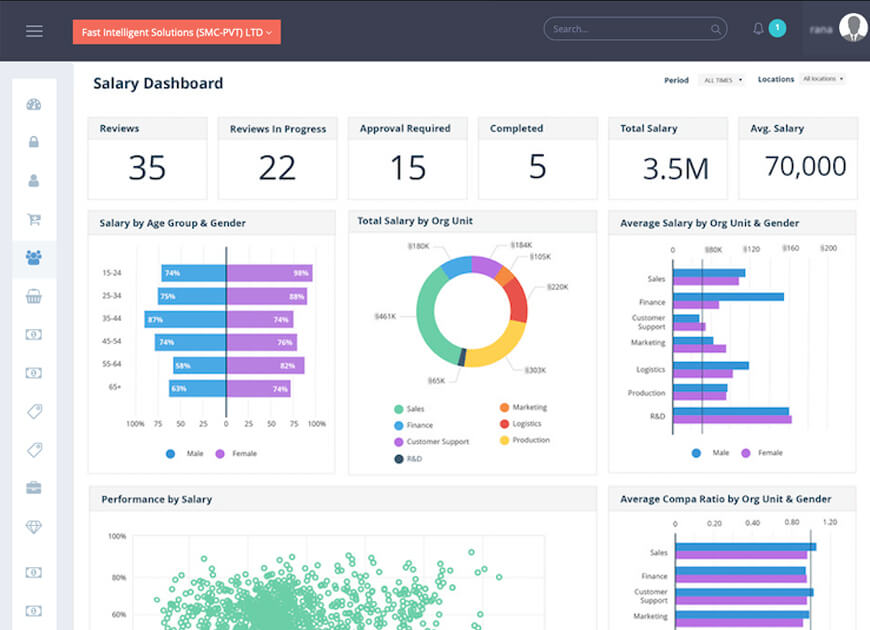Payroll management is a crucial function for businesses of all sizes. It ensures employees receive timely and accurate compensation while complying with tax regulations and labor laws. Traditional payroll systems, however, often suffer from inefficiencies, security vulnerabilities, and high processing costs. With the advent of blockchain technology, the payroll landscape is poised for a significant transformation. Blockchain’s decentralized, transparent, and secure nature makes it an ideal solution for modern payroll challenges. This article explores how blockchain is shaping the future of payroll software and the benefits it brings to businesses and employees alike.
Understanding Blockchain Technology
Blockchain is a distributed ledger technology that records transactions across multiple nodes, ensuring transparency and immutability. Each transaction is grouped into a “block” and linked to the previous one, forming a “chain.” This structure eliminates the need for intermediaries, enhances security, and reduces processing time.
Key features of blockchain include:
- Decentralization: No single entity controls the ledger, reducing the risk of fraud.
- Transparency: Transactions are visible to authorized participants, ensuring trust.
- Immutability: Once recorded, transactions cannot be altered, preventing tampering.
- Smart Contracts: Self-executing contracts with predefined rules automate transactions, reducing the need for manual intervention.
The Challenges of Traditional Payroll Systems
Traditional payroll systems face several challenges, including:
- High Processing Costs – Payroll processing involves banks, tax authorities, and third-party services, each charging fees.
- Security Risks – Sensitive employee data is vulnerable to cyberattacks and fraud.
- Delays in Payments – International payroll transactions can take days due to banking regulations and currency conversion.
- Compliance Issues – Businesses must comply with various labor laws and tax regulations, increasing administrative burdens.
- Lack of Transparency – Employees often have limited visibility into payroll calculations, leading to disputes.
Blockchain technology addresses these issues by providing a secure, efficient, and transparent payroll system.
How Blockchain Transforms Payroll Software
1. Enhanced Security and Data Protection
Blockchain encrypts payroll data, making it nearly impossible for hackers to alter or steal information. Since data is stored across multiple nodes rather than a centralized server, the risk of cyberattacks is significantly reduced. Additionally, blockchain-based identity verification ensures that only authorized individuals can access payroll records.
2. Cost Reduction
By eliminating intermediaries such as banks and payroll service providers, blockchain reduces transaction costs. Cryptocurrency payments, in particular, allow businesses to bypass costly wire transfer fees and currency conversion charges. Smart contracts further reduce administrative expenses by automating payroll calculations and compliance checks.
3. Real-Time Payments and Global Payroll
Blockchain facilitates real-time cross-border payments using cryptocurrencies or stablecoins. Employees can receive their salaries instantly, regardless of their location. This is particularly beneficial for freelancers, remote workers, and gig economy professionals who often face delayed payments due to traditional banking processes.
4. Smart Contracts for Automated Compliance
Smart contracts enable automatic payroll execution based on predefined conditions. For example, a smart contract can:
- Calculate wages based on work hours recorded on a blockchain.
- Deduct taxes and benefits automatically.
- Disburse salaries once all conditions are met.
This reduces human errors, ensures compliance with tax regulations, and eliminates the need for manual interventions.
5. Greater Transparency and Trust
Employees can access a transparent ledger showing payroll calculations, deductions, and payments. This builds trust and reduces disputes over wages, tax deductions, and benefits. Employers also benefit from an immutable record of payroll transactions, which aids in audits and regulatory compliance.
6. Integration with IoT and AI
Blockchain-powered payroll software can integrate with IoT devices and AI algorithms to automate time tracking, attendance monitoring, and productivity assessments. For example:
- IoT devices can record employee work hours and update payroll in real-time.
- AI can detect payroll anomalies and suggest optimizations.
These integrations further enhance efficiency and accuracy.
Real-World Applications of Blockchain in Payroll
1. Bitwage
Bitwage is a blockchain-based payroll service that allows companies to pay employees in Bitcoin or stablecoins. It provides faster, more secure international payments with lower transaction fees.
2. ChronoBank
ChronoBank is a blockchain project focused on improving HR and payroll processes. It leverages blockchain to facilitate transparent and efficient payroll transactions for freelancers and gig workers.
3. PayXpert
PayXpert integrates blockchain for secure and compliant payroll solutions, helping businesses reduce fraud and improve payment efficiency.
The Future of Blockchain in Payroll Software
1. Wider Adoption of Stablecoins
Stablecoins, pegged to fiat currencies, provide a bridge between traditional finance and blockchain-based payroll systems. As regulatory clarity improves, more businesses will adopt stablecoins for payroll transactions.
2. Government Regulations and Compliance
Governments worldwide are recognizing the potential of blockchain in payroll and taxation. Regulatory frameworks will evolve to accommodate blockchain payroll solutions, ensuring compliance with labor laws and tax regulations.
3. Decentralized Payroll Platforms
Future payroll software may operate on decentralized finance (DeFi) platforms, offering more financial inclusivity and flexibility. Employees could access their earnings in real-time, invest in decentralized savings plans, or receive benefits in digital assets.
4. AI-Driven Payroll Optimization
AI and machine learning will enhance blockchain payroll systems by predicting salary trends, optimizing tax deductions, and detecting fraud.
Conclusion
Blockchain is revolutionizing payroll software by offering secure, transparent, and cost-effective solutions. By eliminating intermediaries, enhancing security, and enabling real-time payments, blockchain improves payroll efficiency for businesses and employees alike. As regulatory frameworks evolve and blockchain adoption grows, the future of payroll management will be more decentralized, automated, and globally accessible. Organizations that embrace blockchain payroll solutions early will gain a competitive advantage in an increasingly digital economy.

